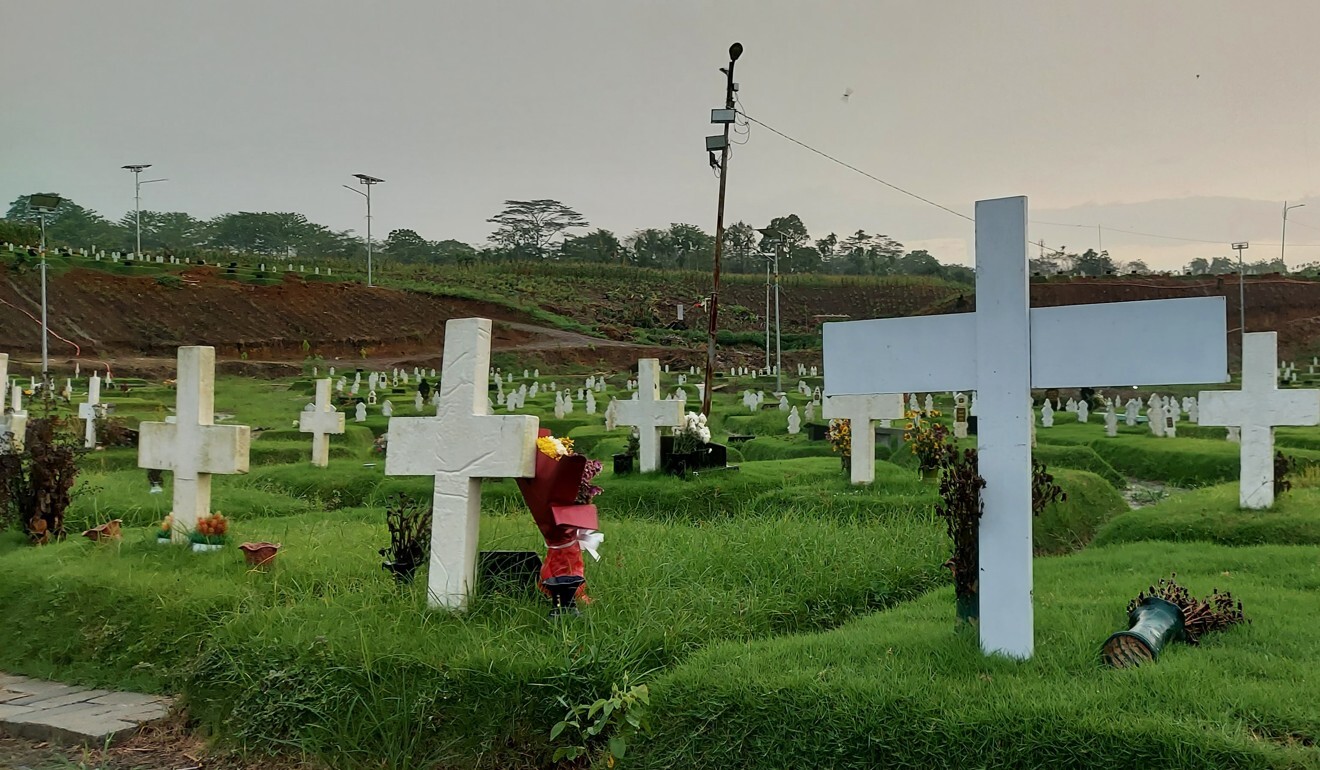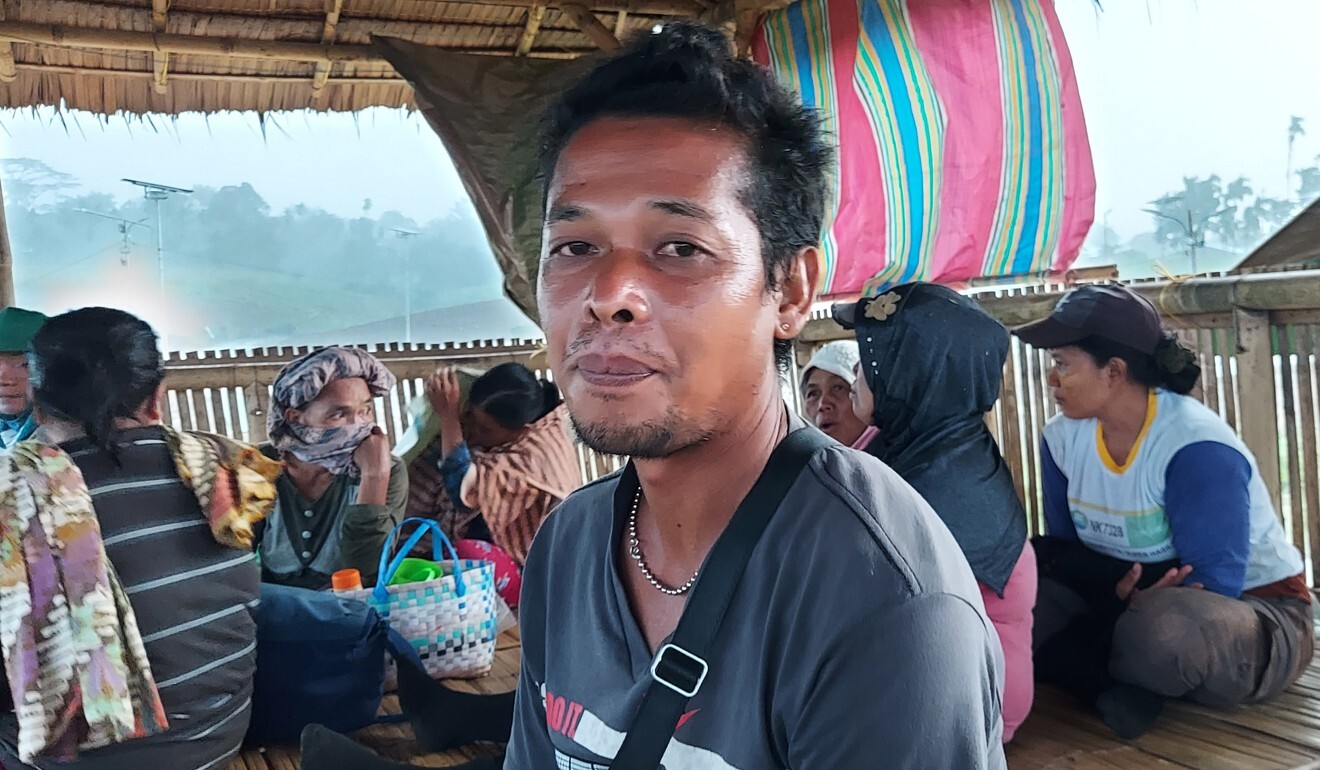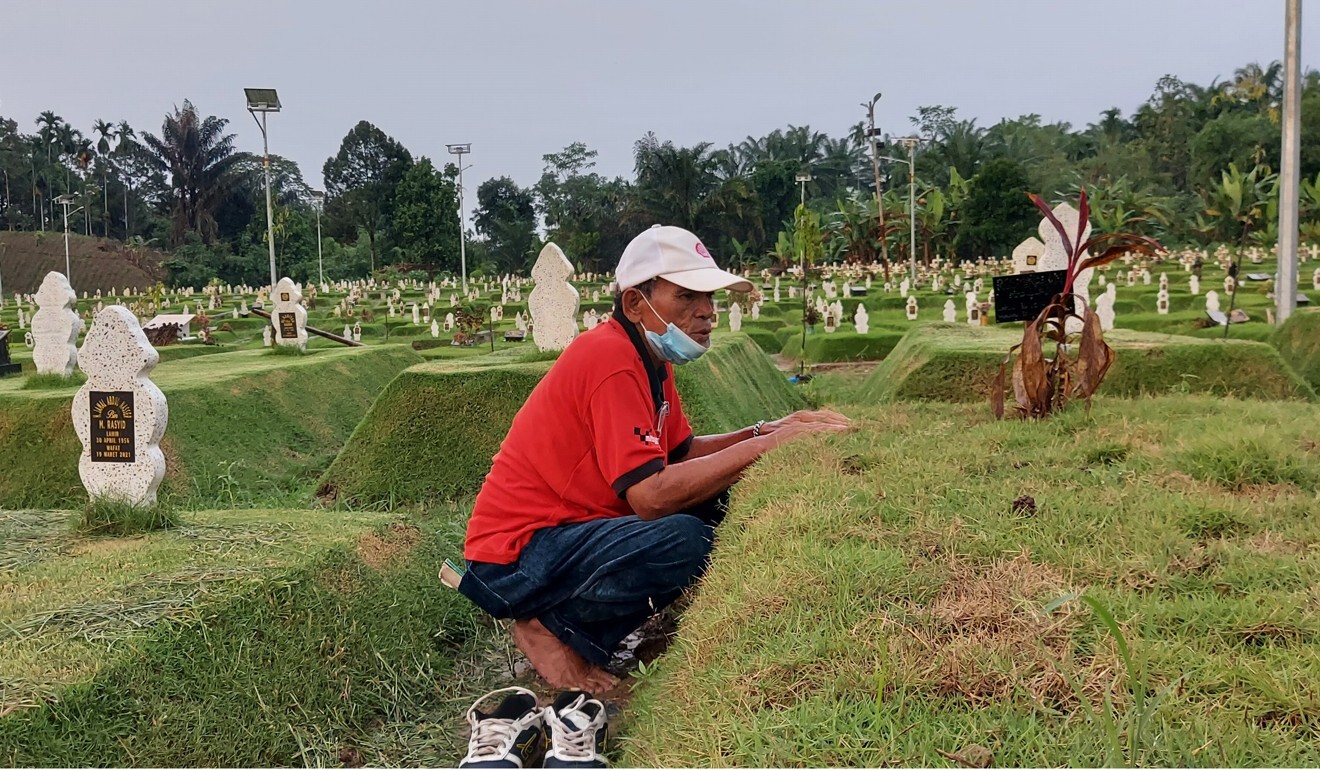
Coronavirus: Indonesians in Sumatra mourn loved ones amid fears of new hotspots
- The second most populous island is recording a rise in cases, which may have been caused by people travelling home for the Eid ul-Fitr holiday
- In Medan, North Sumatra, the sole Covid-19 cemetery is getting so large, mourners struggle to find the final resting spot of their relatives

As Indonesia continues to bury its Covid-19 dead, the families behind the official statistics have been left to count the costs amid concerns of a rise in cases outside the usual hotspots on the island of Java.
Indonesia’s most populous island has borne the brunt of the pandemic, and the archipelago as a whole has recorded over 1.8 million cases and more than 50,000 deaths since the start of the outbreak.
But on May 13, Wiku Adisasmito, the spokesperson of the Covid-19 Task Force, said infections in Java had fallen by 11 per cent, while the country’s second most populous island of Sumatra had recorded a 27 per cent increase in cases.
“In February and March this year, no provinces in Sumatra were among the top 10 largest contributors to Covid-19 cases nationwide. But in May, five provinces in Sumatra were on the list,” he said, adding that coronavirus-related deaths also rose by 17 per cent across Sumatra.

Abdi, 36, a gardener at the only designated Covid-19 cemetery in Medan, North Sumatra, said the number of bodies buried had tripled over the past few months.
About six people are buried each day now, he said, compared to just one or two a few months ago.
“The hospitals just seem to wrap, and wrap, and wrap [the bodies in plastic sheeting in line with Covid-19 burial protocols],” he said. “Then they bring the bodies here within four hours of their deaths so that we can bury them.”
Abdi added that while the cemetery usually had few visitors as families were wary of contracting Covid-19, he noticed a spike in numbers around the Eid ul-Fitr holiday on May 13.
“You should have been here then,” he said. “It was so busy with people coming for pilgrimage, bringing flowers and praying together.”
Despite the government banning people from returning to their hometowns to celebrate the annual event that marks the end of the Muslim fasting month, Indonesia’s President Joko Widodo said 1.5 million people were thought to have defied the order this year.
After the holiday, Sumatra Island stepped up security in port areas to check those suspected of returning from the event as cases surged.
In a national address released on the President’s YouTube channel on May 18, Widodo said the government had set a target for hospitals across the country to have a bed occupancy ratio (BOR) of less than 50 per cent amid the pandemic.
“There are several provinces that are still above 50 per cent,” he said, singling out provinces in Sumatra Island.
“Three provinces need to be careful. North Sumatra has a 56 per cent BOR, the Riau Islands has a 53 per cent BOR and Riau has a 52 per cent BOR,” he said. “If a lot of people are being admitted to hospitals, then it means we need to be super careful.”

As of Thursday, Ministry of Health figures stated that 1,053 people have died across North Sumatra Province since the pandemic began.
But experts have said Covid-19 is likely to be affecting Indonesia on a wider scale than official data suggests, due to under-reporting.
According to gardener Abdi, “over 1,000” people were buried at Medan’s Simalingkar B Cemetery alone.
The graveyard is now so large that Marahlaluan Rambe, 66, last Monday struggled to find the final resting place of his wife, Rosminah Hasibuan, 60, who died on March 20.
Her grave is marked only by a small metal plaque as the tombstone has yet to be delivered to Simalingkar B.

“No one was with her when she died,” Marahlaluan told This Week in Asia. “Only Allah knows what happened. It is all up to Him.”
According to Marahlaluan, his wife had complained of chest pains and difficulty breathing the night before her death. She went to two different hospitals in Medan, a city of 2.4 million people, but both had turned her away over a lack of available oxygen.
The third hospital finally admitted Rosminah at around midnight, only to call Marahlaluan at 8am to say that his wife had died of suspected Covid-19.
“When I arrived at the hospital, they had already wrapped her in the plastic sheeting,” Marahlaluan said. “The medical staff told me they prayed for her soul as they wrapped her. We hope they did.”
Before her death, Rosminah had worked at a market selling crates of eggs, but had not been vaccinated against Covid-19. On February 27, 104 workers at the market were vaccinated during an inoculation drive that was attended by Jokowi’s son-in-law, Bobby Nasution, who is serving his first term as the Mayor of Medan.
Marahlaluan, who works as a car park attendant and earns about 100,000 Indonesian rupiah (US$7) a day, was upset that the city did not pay for his wife’s grave plot or tombstone.
At a cost of 2.5 million rupiah (US$174) for the grass and stone work, it was more than he could afford.
“I went to the Population and Civil Registration Agency [which handles births and deaths] to ask if they would pay for it, because we are in the middle of a pandemic, but they had a sign on the door that said they were closed and would not be taking public enquiries,” he said.
“Where is a car park attendant like me going to get money like that?”